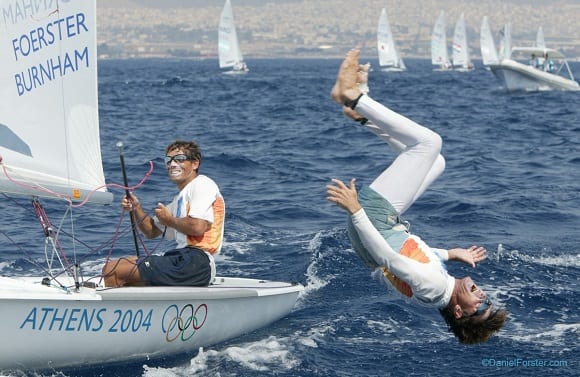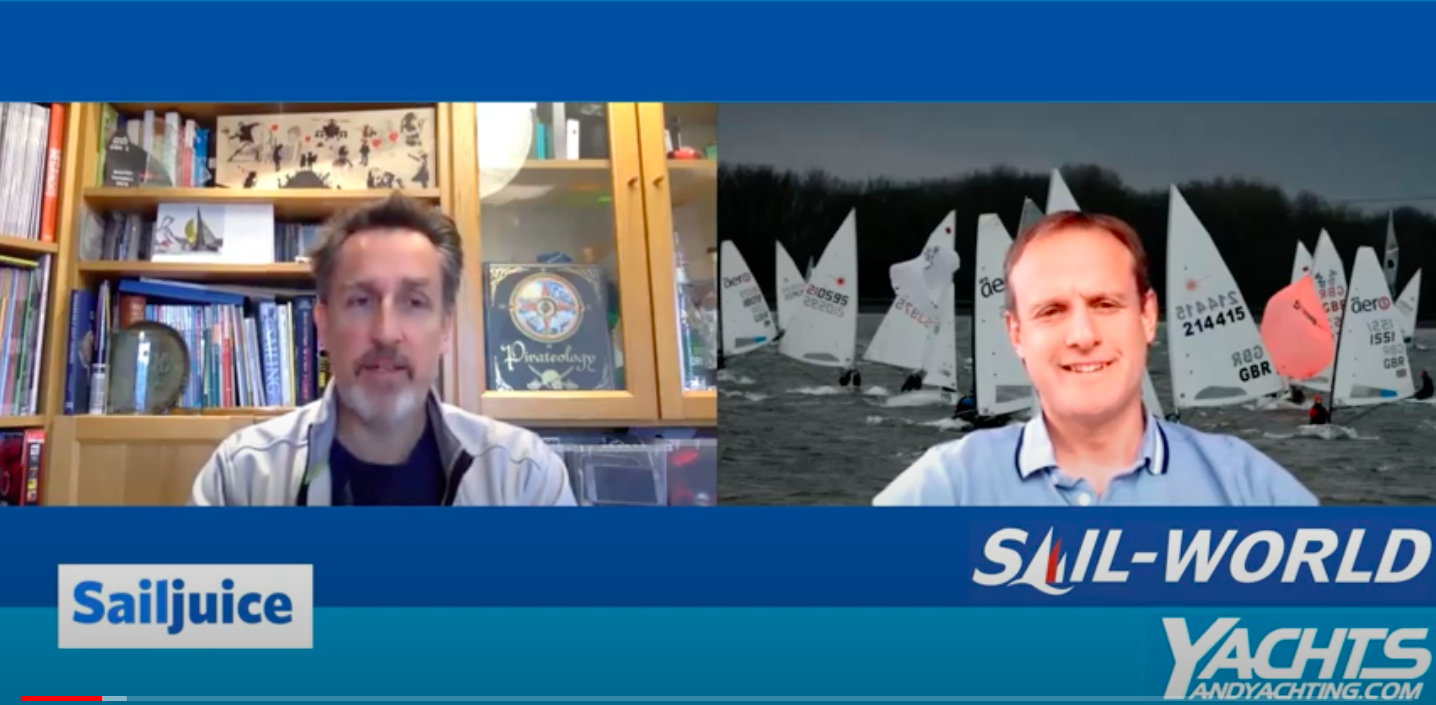Roll Tacks - October 2012
One of the recurring topics that crops up during my conversations with sailors is how the highly organised and successful RYA-led youth squads, zone squads and so on are affecting club sailing.
In terms of the youth squad hitting its targets, you can’t fault it, with the Brits winning the President’s Cup for coming top nation at the 4 Star Pizza ISAF Youth Worlds in Ireland earlier in the summer. But I have some sympathy with the much-repeated view that all this national success does little for the club racing scene, and sometimes detracts from it. This thorny subject I’ve debated in the past with the RYA’s Rod Carr (in his days as chief executive) and racing manager John Derbyshire, and they point out that the funding that gets ploughed into high-level youth sailing is provided by the central funding body, UK Sport, for that single purpose. It’s not cash that the RYA can re-allocate to other parts of the sport, even if they wanted to.
Fair enough, a good justification for the way youth sailing is supported to such a high level. But can’t there be a way of keeping the standards high (which is what’s required to keep the funding tap flowing) without making kids and parents travel all round the country on multiple weekends throughout the year? Surely you don’t need to bring all the very best sailors together all the time, to bring out the best performance from them, especially not in a country like ours which is so densely packed with sailing talent.
In geographical terms, Perth, in Western Australia, is the most isolated city in the world, yet it has produced 29er World Champions and a high standard of youth sailor for many years. They’ve achieved this with a tight-knit, small group of committed sailors being coached by equally committed coaches. They didn’t need to travel on a regular basis to become the best in the world. The same used to be true of 470 sailing in New Zealand in the 1980s when David Barnes and Hamish Willcox used to win the Worlds year after year, followed by a bunch of fellow Kiwis filling the top three or four places. The rest of the world would cower in anticipation of another Kiwi mauling at every 470 World Championships.
So maybe there is another way, one that requires less travel and a stronger commitment to a home club. I’ve heard that some of the parents at Hayling Island were getting tired of traipsing around the country to the youth events in the RS Feva. Instead they hired Adam Bowers to drive over from Weymouth for a series of weekend coaching sessions over the winter, and kept the coaching at Hayling. This allowed the parents to carry on with their own racing, and Adam did his coaching with the kids, helping turn them into one of the most competitive Feva fleets in the country. It would be nice to see more initiatives like this, and for the RYA to support an alternative to the petrol-hungry travelling circus which tends to restrict high-level youth campaigning to the well-to-do middle classes.
The Non-Travellers Series
On the theme of ways to grow club racing without the need for so much travelling, I’ve been wondering if there’s a way of having a virtual club race simultaneously across the whole country.
Here’s my theory, you can tell me if it’s stupid at the end, but hear me out first. Now, pretty much every club in the country has a race on a Sunday morning, with all kinds of boat taking part. Race results are captured electronically on software packages such as Sailwave and Excel. So why can’t the results from different sailing clubs be mashed together to create one big nationwide race on a Sunday morning? A weekly handicap racing championship!
Sound nuts? Yes, of course, and there are plenty of reasons why it couldn’t work. But there are plenty of ways it could be made to work. You would probably need every participating club to have a ‘base’ fleet of boats that are popular around the country. The Laser standard rig would be the most obvious example, but other popular classes such as the Solo, GP14 etc would do nicely. Provided there are sufficient clubs across the country using at least one of these ‘base’ boats, then you start to have a means for comparison.
But what about the weather differences across the country on any given Sunday? From blowing a hoolie at Hayling to a drifter at Derwent, how do you make any meaningful comparison there? Well, based on one weekend, you couldn’t. But run the series across three, six or even twelve months of Sundays, and things should start to even out. What about differences in sailing water, from ponds to reservoirs to rivers and open sea with tide? Inevitably a boat’s performance will vary significantly from venue to venue, but maybe over time a boat could be given a different handicap number for different venues.
It’s an idea I’ve already put to a few clubs and I haven’t been called a complete idiot for suggesting it. By no means is this a fully thought-through idea, but it might be fun to give it a go. If you’re interesting in the idea, let me know!
In terms of the youth squad hitting its targets, you can’t fault it, with the Brits winning the President’s Cup for coming top nation at the 4 Star Pizza ISAF Youth Worlds in Ireland earlier in the summer. But I have some sympathy with the much-repeated view that all this national success does little for the club racing scene, and sometimes detracts from it. This thorny subject I’ve debated in the past with the RYA’s Rod Carr (in his days as chief executive) and racing manager John Derbyshire, and they point out that the funding that gets ploughed into high-level youth sailing is provided by the central funding body, UK Sport, for that single purpose. It’s not cash that the RYA can re-allocate to other parts of the sport, even if they wanted to.
Fair enough, a good justification for the way youth sailing is supported to such a high level. But can’t there be a way of keeping the standards high (which is what’s required to keep the funding tap flowing) without making kids and parents travel all round the country on multiple weekends throughout the year? Surely you don’t need to bring all the very best sailors together all the time, to bring out the best performance from them, especially not in a country like ours which is so densely packed with sailing talent.
In geographical terms, Perth, in Western Australia, is the most isolated city in the world, yet it has produced 29er World Champions and a high standard of youth sailor for many years. They’ve achieved this with a tight-knit, small group of committed sailors being coached by equally committed coaches. They didn’t need to travel on a regular basis to become the best in the world. The same used to be true of 470 sailing in New Zealand in the 1980s when David Barnes and Hamish Willcox used to win the Worlds year after year, followed by a bunch of fellow Kiwis filling the top three or four places. The rest of the world would cower in anticipation of another Kiwi mauling at every 470 World Championships.
So maybe there is another way, one that requires less travel and a stronger commitment to a home club. I’ve heard that some of the parents at Hayling Island were getting tired of traipsing around the country to the youth events in the RS Feva. Instead they hired Adam Bowers to drive over from Weymouth for a series of weekend coaching sessions over the winter, and kept the coaching at Hayling. This allowed the parents to carry on with their own racing, and Adam did his coaching with the kids, helping turn them into one of the most competitive Feva fleets in the country. It would be nice to see more initiatives like this, and for the RYA to support an alternative to the petrol-hungry travelling circus which tends to restrict high-level youth campaigning to the well-to-do middle classes.
The Non-Travellers Series
On the theme of ways to grow club racing without the need for so much travelling, I’ve been wondering if there’s a way of having a virtual club race simultaneously across the whole country.
Here’s my theory, you can tell me if it’s stupid at the end, but hear me out first. Now, pretty much every club in the country has a race on a Sunday morning, with all kinds of boat taking part. Race results are captured electronically on software packages such as Sailwave and Excel. So why can’t the results from different sailing clubs be mashed together to create one big nationwide race on a Sunday morning? A weekly handicap racing championship!
Sound nuts? Yes, of course, and there are plenty of reasons why it couldn’t work. But there are plenty of ways it could be made to work. You would probably need every participating club to have a ‘base’ fleet of boats that are popular around the country. The Laser standard rig would be the most obvious example, but other popular classes such as the Solo, GP14 etc would do nicely. Provided there are sufficient clubs across the country using at least one of these ‘base’ boats, then you start to have a means for comparison.
But what about the weather differences across the country on any given Sunday? From blowing a hoolie at Hayling to a drifter at Derwent, how do you make any meaningful comparison there? Well, based on one weekend, you couldn’t. But run the series across three, six or even twelve months of Sundays, and things should start to even out. What about differences in sailing water, from ponds to reservoirs to rivers and open sea with tide? Inevitably a boat’s performance will vary significantly from venue to venue, but maybe over time a boat could be given a different handicap number for different venues.
It’s an idea I’ve already put to a few clubs and I haven’t been called a complete idiot for suggesting it. By no means is this a fully thought-through idea, but it might be fun to give it a go. If you’re interesting in the idea, let me know!
Related Articles

Roll Tacks - November 2013
Is Nick Craig the best British dinghy racer ever? Well, fans of Ben Ainslie might have something to say about that. But after his seventh victory at the Endeavour Trophy, supported again by Topper Sailboats, Nick has to be considered one of the all-time greats. Not too shabby a performance by his crew, Alan Roberts, either. Alan finished a close runner-up to Nick two years ago when crewing for James Peters. Then last year Alan crewed Ben Saxton to a first-time victory at the Endeavour. To repeat the feat with a different helm, his former rival Nick, speaks volumes of Alan’s ability. A name we’ll hear a lot more about in the future.
Read More

Podcast: How Road To Gold is changing attitudes to campaigning
Read More

Award-winning writer and blogger Carol Cronin asks Andy Rice about the Road To Gold project he put together in late 2020 with three-time 470 World Champion Hamish Willcox...

R.I.P. Kevin Burnham, 470 Legend & Master of the Backflip
Read More

Kevin Burnham, Olympic gold and silver medallist in the 470, has died at the age of 63, just week after the passing of another legend of the class, Dave Barnes. This photo says so much about the force of nature that was Kevin Burnham...

Podcast: Vendée Thriller, America's Cup & UK dinghy racing
Read More

Podcast: Update on the Vendée, America's Cup latest & Selden Sailjuice Winter Series. Andy Rice enjoys a lockdown chat with Mark Jardine of Sail-World.com
